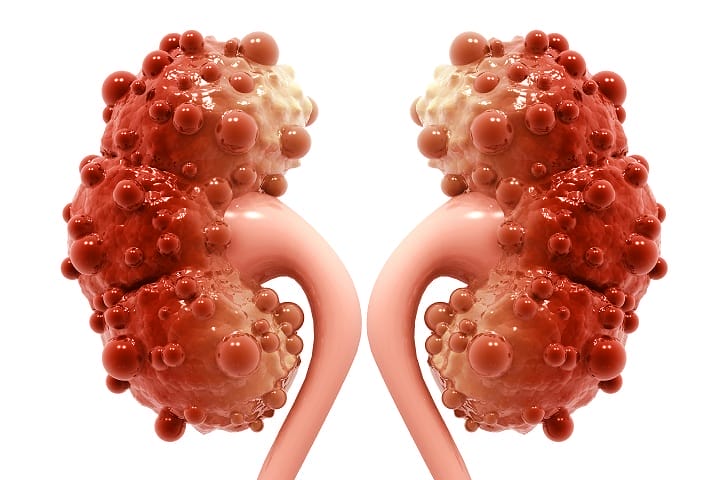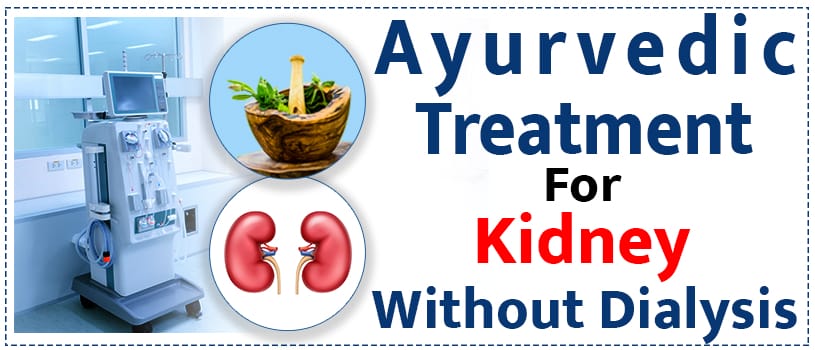- There is no cure for PKD.
- PKD is a genetic disorder that has no cure in allopathy.
- Have you been listening to such terms lately?
- Do you know these statements have a myth buster?
Do you know that Ayurvedic treatment for PKD is a profound cure to heal the damage other than just PKD too? If not, then this piece of content is for you. Today, we will discuss only the management of PKD with Ayurvedic principles. You will get to know the foods you should avoid if you are a PKD patient.
PKD is a type of nephropathy that comes as a genetic disorder. It is a rare disease that invades the functioning of kidneys at a tender age or from the birth itself. PKD is best defined as the cysts developing on or in the membrane of kidneys with no cure in allopathy. It is majorly said that PKD comes with no cure and only can be managed with the appropriate use of medicines. However, Ayurvedic treatment for PKD strongly disagrees with such statements and provides an assured cure.

The natural treatment starts with the modifications in the diet and lifestyle to manage the damage and bring back the lost functioning. The Ayurvedic medicines incorporate the correct usage of foods and beverages that empowers the functioning of kidneys.
Kidneys have a crucial responsibility of maintaining the adequate balance of fluid, filter the blood, and produce the urine and many more. An Ayurvedic nephrologist or an Ayurvedacharya can help with the management of diet. It is their forte to describe the food intake during the course of Ayurvedic treatment for PKD. A kidney diet plays a crucial role in the recovery as it is one of the primary organs to get influenced by the foods and beverages. Now, let us discuss the foods that should be avoided by polycystic kidney disease patients.
Following are the twelve types of foods and beverages that you should avoid:
- Avoid packed and fried foods: Foods like junk food and frozen food are preserved by adding a high amount of sodium in it.
- Avoid adding Avocados: Yup! Avocados. The avocados are considered healthy fruit, but it is dangerous and harmful for the kidney cyst patient. It contains potassium in high amounts, which is not good when your kidneys are already weak.
- Avoid soft drinks: Soft drinks like cola are not only high in calories but also have phosphorus in it. The phosphorus is addictive, and manufacturers add this to enhance the flavor. It is harmful as the human body absorbs it quickly, which is dangerous for the functioning of kidneys.
- Avoid bananas: Another healthy fruit that you cannot eat because of the high amount of potassium present in it. Have pineapple is renal-friendly.
- Leave the dairy products as well: OK! Not entirely but avoid as much as you can or have once in two days. A dairy product contains potassium, phosphorus, and protein, which may result in unfavorable conditions.
- No more wheat bread: Though it is healthy to have wheat bread commonly known as brown bread but not for a kidney cyst patient. It is abundant in a high amount of sodium, potassium, and phosphorus. But you can have white bread for its lower levels of sodium, potassium & phosphorus.
- Say forever bye to processed food (meat and other processed items) because of the high amount of sodium & protein in them.
- No more oily & spicy food and pickles.
- Avoid dry fruits: Dried fruits are concentrated and increase the levels of potassium than before.
- Avoid fruits like oranges and their juices; instead, have juices of apples, grapes, cranberries & cucumbers.
- Tomatoes are a misfit for a renal diet: especially when you have kidney cysts and kidney stones in your body.
- Avoid potatoes and sweet potatoes as they are a great source of potassium. The potassium can be reduced by 50% when boiled or cooked but still not recommended for a renal diet plan.
These are the basic guidelines that any nephrologist will provide you with. Other than these 12 foods, the following three foods also play a captivating role in the weakening of kidneys bearing the side effects of PKD. These foods are prohibited under the Ayurvedic treatment for PKD:
Dates:
We all know that the dry fruit has got so many nutrients that are helpful for the growth of hair and maintains healthy skin. But did we all know that these power-packed nutrients can adversely affect the functioning of kidneys during the Ayurvedic treatment for PKD? Although dates are the first choice of physicians to boost the blood hemoglobin levels, the kidney patients are still advised to restrict their consumption. Dates are high in Vitamin C and potassium; the dieticians restrict the consumption of foods that are rich in potassium, phosphorus, protein, and sodium from the kidney diet. Now let us discuss the nutritional values of dates per 110 gms:

- Calcium: 39 mg
- Manganese: 0.262 mg
- Potassium: 656 mg
- Zinc: 0.29 mg
- Iron: 1.02 mg
- Phosphorus: 62 mg
- Sodium: 2 mg
Watermelons:
We all know the benefits of watermelon for our body, but the same doesn’t work with kidney patients. It is one of the primary foods that are asked to avoid during the Ayurvedic treatment for PKD. Know the nutritional values of watermelon that restricts its consumption. The following values are recorded as per 100 Gms watermelon:

- Iron: 0.24 mg
- Calcium: 7mg
- Sodium: 1 mg
- Phosphorus: 11 mg
- Zinc: 0.1 mg
- Magnesium: 10 mg
- Manganese: 0.038 mg
- Potassium: 112 mg
Green leafy vegetables:
We grew up in an environment where the mothers, aunts, and grandmothers convinced us that if we do not eat green leafy vegetables, we won’t grow strong. Kale is one of the finest and richest sources of different nutrients among all such vegetables. It is low in potassium and loaded with Vitamin A, C & K, and Folate. It is also believable that all the green leafy vegetables are vision-friendly and provide ample benefits that regulate a healthy level of cholesterol in the blood. There comes a restriction when kidney diseases have invaded your bodily function. Because of the high amounts of restricted nutrients, the nephrologists deny the consumption of green leafy vegetables. If we specifically discuss spinach, it has the following nutritional facts (Per 100 Gms):

- Sodium: 79 mg
- Potassium: 558 mg
- Protein: 2.9 g
- Vitamin C: 46%
- Vitamin A: 187%
- Calories: 23
- Carbohydrates: 3.6 g
These were the food options that a PKD patient should avoid to attain a good and healthy life. PKD is a progressive disease that affects the functioning of kidneys in diverse ways. It has two types Autosomal Recessive Polycystic Kidney Disease and Autosomal Dominant Polycystic Kidney Disease. Out of them, ADPKD is the common one and comes from the biological parents in inheritance. It is the transfer of the mutated gene from biological parent to the bearer. In ARPKD, the transfer of the mutated gene happens from generation to generation.

